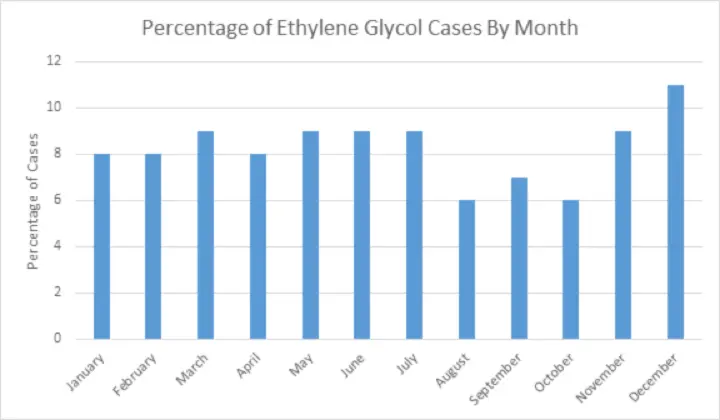Antifreeze: Not Just a Winter Toxin
If a client’s dog got out of the owner’s yard for a few hours on a sunny summer day and presented to your hospital with vomiting, ataxia and depression, would you check into the possibility of ethylene glycol exposure?
Traditionally, ethylene glycol-based antifreezes are thought of as more of a winter toxin, but keep reading to find out why you need to make sure to keep ethylene glycol on your list of rule-outs, even during warm months!
An analysis of the calls made to the ASPCA Animal Poison Control Center show that the number of ethylene glycol (EG) antifreeze cases is fairly static throughout the year, with the exception of a small spike in December.

We have lots more on this subject:
Topics:
Toxicology & Poison Control
Type:
Tips



